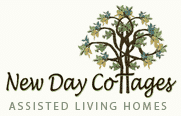Choosing an Assisted Living Facility with Strong Staff-Resident Relationships
When choosing an assisted living facility for a loved one, one of the most vital aspects is the quality of staff-resident relationships. These relationships greatly influence the experience of your loved one in the facility, and a strong bond can make all the difference in their happiness, comfort, and overall well-being. In this guide, we’ll dive deep into the importance of staff-resident relationships in assisted living facilities, key indicators of a healthy relationship, and how to evaluate these relationships when choosing a facility. We’ll also provide strategies for building and maintaining robust relationships with staff once your loved one is in care, highlighting the importance of personalized care and attention in fostering these relationships.
Understanding the Importance of Staff-Resident Relationships in Assisted Living Facilities
The Role of Staff in Assisted Living Facilities
In an assisted living facility, staff members play a critical role in shaping residents’ daily lives, making them more than just caregivers. They are companions, confidants, and, in many cases, surrogate family members. Staff in these facilities are responsible for various tasks, from assisting with personal care and medication management to planning activities and preparing meals. However, their role goes beyond these tasks.
The staff in assisted living facilities are also responsible for fostering a sense of community and belonging among residents. A nurturing and supportive staff can significantly enhance the quality of life for residents, helping them feel secure, respected, and valued.
The Impact of Strong Staff-Resident Relationships on Quality of Care
Strong staff-resident relationships are a cornerstone of high-quality care in assisted living facilities. These relationships can greatly impact a resident’s overall satisfaction and well-being. When residents have a positive rapport with care staff, they are more likely to feel comfortable, secure, and happy in their living environment.
According to a study by the Gerontologist, staff, and family interactions affect the caregiving experience significantly. The presence of affirmation from family members and staff contributes to a more rewarding and less frustrating caregiving experience. When staff and residents develop meaningful relationships, they can better understand each other’s needs and preferences, leading to personalized care and attention.
Strong staff-resident relationships can also alleviate loneliness, a common issue among seniors in assisted living facilities. Through positive interactions and companionship, staff can help foster a sense of belonging among residents.
Key Indicators of Strong Staff-Resident Relationships in Assisted Living Facilities
Personalized Care and Attention
Personalized care is a hallmark of a solid staff-resident relationship. It’s not just about providing medical care or assistance with daily activities but tailoring these services to meet each resident’s needs and preferences. This person-centered approach, often seen in assisted living homes, ensures that residents receive the specific support they require while maintaining their autonomy.
Positive Interactions Between Staff and Residents
Observing the interactions between the staff and the residents can provide valuable insights into their relationships. Positive interactions, such as open communication, mutual respect, and shared laughter, are signs of a strong bond. Staff who make efforts to initiate and maintain relationships with residents through respectful and empathetic interactions are likely to foster stronger relationships that enhance the residents’ experience.
Staff’s Knowledge About Residents’ Personal Lives and Preferences
Another key indicator is the staff’s familiarity with the residents’ personal lives and preferences. If staff know the residents’ likes, dislikes, routines, and personal histories, it suggests a more profound connection that extends beyond essential caregiving duties. This knowledge allows the staff to provide more personalized care and create an environment where residents feel understood, valued, and at home.
How to Evaluate Staff-Resident Relationships When Choosing an Assisted Living Facility
Observing Interactions During Visits
First impressions matter, so make the most of your initial visit to a prospective facility. During your tour, pay close attention to the interactions between staff and residents. Are the staff members warm, patient, and respectful? Do the residents appear comfortable and at ease around them? Do they engage in meaningful conversations? Remember, these interactions provide a window into the everyday life of the facility.
Asking About Staff Turnover Rates
A high staff turnover rate can be a red flag regarding the quality of care and relationships at an assisted living facility. Frequent personnel changes can disrupt continuity of care and make it hard for residents to form strong bonds with the staff. Don’t hesitate to ask about the staff turnover rate during your visit. A low rate is a good indicator of a positive working environment and solid staff-resident relationships.
Seeking Feedback from Current Residents and Their Families
Lastly, don’t underestimate the power of first-hand testimonials. Try to speak with current residents and their families during your visit. Ask them about their experiences with the staff, the kind of relationships they’ve built, and their overall satisfaction with the facility. You could also look for online reviews and ratings to gain additional insights.
Strategies for Building and Maintaining Strong Relationships with Staff in Assisted Living Facilities
Getting to Know the Care Team
When you take the time to get to know the care team, you create an opportunity for a more personalized care experience for your loved one. Ask about their lives, their experiences, and their interests. Maybe find out if they’re working part-time while studying at a local university or if they have children or grandchildren. Demonstrating genuine interest helps establish connections and enables better collaboration towards achieving your loved one’s best interests.
Helping the Staff Get to Know Your Loved One
The more the staff knows about your loved one, the better equipped they are to provide personalized care. Encourage your loved one to share their stories — their family history, work experiences, hobbies, and preferences. Regularly visit, especially during the early transition period, to give the staff more insights about your loved one. This helps the staff understand your loved one better and fosters a sense of community, making the assisted living facility feel more like home.
Showing Appreciation to the Staff
Working in an assisted living facility can be both physically and emotionally demanding. Recognizing the hard work of the staff can go a long way in building solid relationships. A simple ‘thank you’ or a word of appreciation can significantly impact a team member’s day. It also fosters a positive environment, which benefits the staff and residents.
The New Day Cottages Approach to Staff-Resident Relationships
Finding a small, intimate assisted living facility that strongly emphasizes fostering meaningful staff-resident relationships can feel like searching for a needle in a haystack. However, some facilities, like New Day Cottages, have integrated these principles into their core values and daily operations.
Small, Family-Like Environment
At the heart of New Day Cottages is a small, family-like environment where all residents are treated as part of the family. With only 11 and 16 residents in their homes, this intimate setting encourages close-knit bonds between the staff and residents. This smaller scale also reduces the impersonality often experienced in more extensive facilities and creates opportunities for staff to get to know each resident personally. It mitigates the feelings of loneliness often experienced by seniors, offering a welcoming and inclusive atmosphere where residents can share daily experiences, interact, and participate in group activities.
Personalized Care for Each Resident
Understanding that each resident has unique physical and emotional needs is vital at New Day Cottages. The staff has a personal relationship with each resident, allowing them to provide personalized care and attention. This is further facilitated by the small number of residents, which ensures everyone receives the care they need without feeling overlooked.
Strong Emphasis on Building Relationships
In addition to providing a family-like environment and personalized care, there’s a strong emphasis placed on building relationships. Staff members make it a point to establish a good rapport with each resident and their family. They understand that open communication and empathy are essential in fostering trust and respect, ultimately leading to closer relationships. This approach ensures that residents and their families feel confident in the care provided and that their loved ones are treated with dignity and respect.
Ultimately, New Day Cottages aims to provide a high-quality living environment that fosters strong relationships between staff, residents, and their families. By prioritizing these relationships, they ensure that each resident feels valued, cared for, and part of a supportive community. The small, family-like environment, personalized care, and strong emphasis on relationship building make it an ideal choice for those seeking a home where their loved ones will be cared for, deeply appreciated, and respected.
Conclusion
Choosing an assisted living facility for a loved one is a significant decision that involves various considerations. Foremost among these is the quality of the staff-resident relationships. The strength of these relationships can drastically impact the quality of care, the resident’s happiness, and overall well-being.
Remember, the critical indicators of staff-resident solid relationships include personalized care and attention, positive interactions between staff and residents, and staff’s knowledge about residents’ personal lives and preferences. During your search, observe interactions during visits, ask about staff turnover rates, and seek feedback from current residents and their families.
Once you’ve selected an assisted living facility, play an active role in fostering these relationships. Get to know the care team, help the staff get to know your loved one, and show appreciation for the staff’s efforts. These strategies will enhance your loved one’s quality of life and reinforce the significance of solid staff-resident relationships.
Never underestimate the power of staff-resident solid relationships. They can significantly influence the overall experience in an assisted living facility, ensuring your loved one feels valued, understood, and cared for. Always prioritize these relationships when choosing an assisted living facility – it’s an investment in your loved one’s happiness and well-being.

